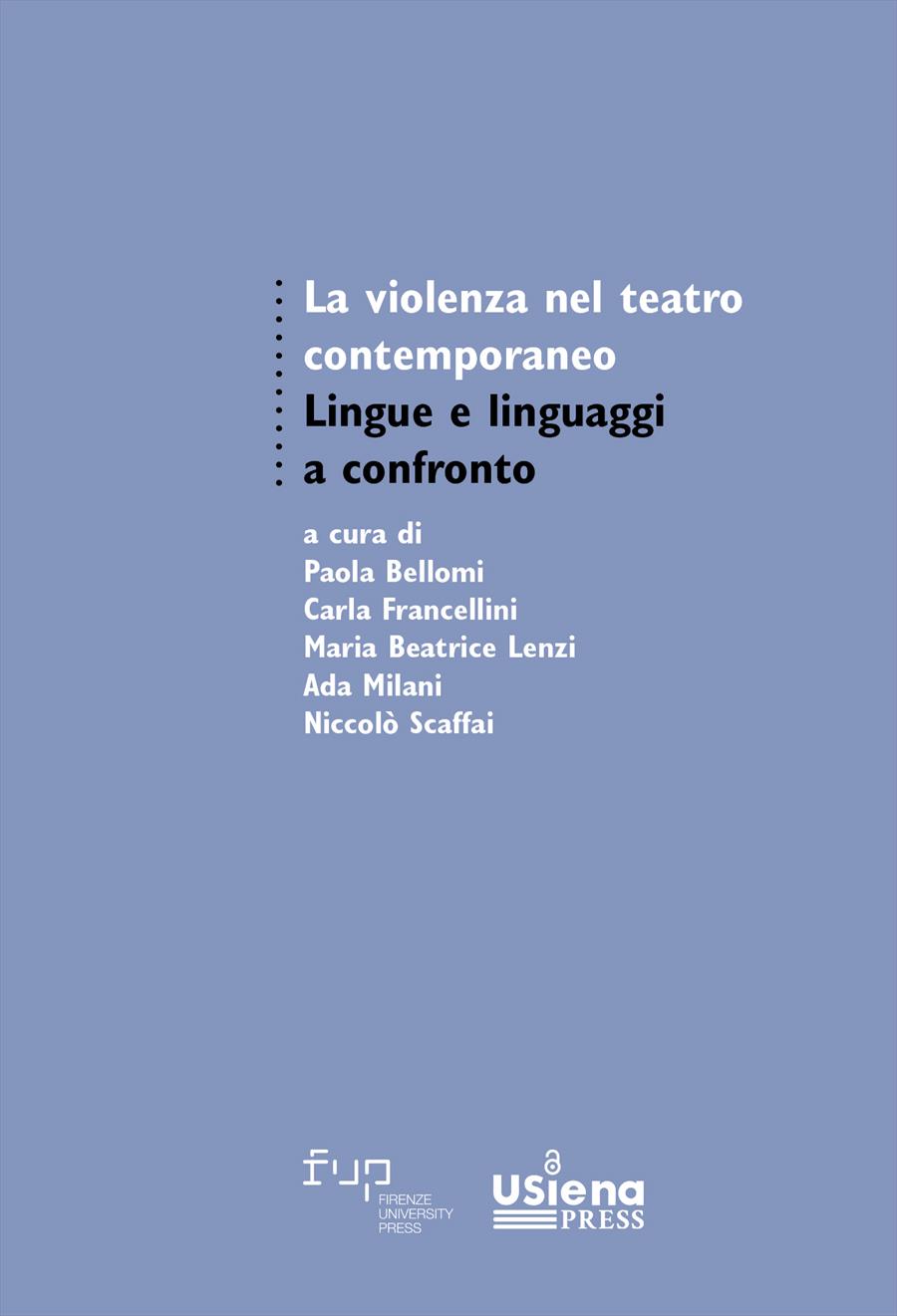- La violenza nel teatro contemporaneo
- Edited by Paola Bellomi, Carla Francellini, Maria Beatrice Lenzi, Ada Milani, Niccolò Scaffai
Codificazione della violenza: l’Elektra di Hugo von Hofmannsthal
- Linda Puccioni
- © 2023 Author(s) |
- CC BY-SA 4.0
- DOI: 10.36253/979-12-215-0278-7.08
Hugo von Hofmannsthal's Elektra constitutes an important turning point in the transition from early lyric to theatre. Inspired by Sophocles' drama, but with elements more similar to Euripides', it proposes a linguistic connotation, characterisation of the characters and a completely innovative and unconventional staging. Blood, a concrete representation of the unprecedented violence that characterises the entire drama, is the red thread that links the succession of events. Words turn into weapons and the protagonist's thirst for vengeance drives the action. The finale culminates in a supreme act of violence that sees the roles reversed: the executioners become victims and the victims executioners. This is the only solution to end the circle of brutal suffering.
- Keywords:
- Hugo von Hofmannsthal,
- contemporary Austrian theatre,
- Sophocles,
- Euripides,
- violence,
University of Siena, Italy
- Brittnacher H. R., Erschöpfung und Gewalt. Opferphantasien in der Literatur des Fin de siècle, De Gruyter, Köln 2002.
- Buglioni C. M., La Grecia di Hofmannsthal a teatro: regie reinhardtiane, «Acme», vol. 69, n. 2, 2016.
- Cercignani F., Elettra e la prigione dell’io. La tragedia e il “libretto” di Hofmannsthal, «Studia Austriaca», XIV, 2006.
- Eysoldt G., Hofmannsthal H. von, Der Sturm Elektra. Briefe, hg. v. L. M. Fiedler, Residenz, Wien 1996.
- Hofmannsthal H. von, Briefe 1900-1909, Bermann-Fischer, Wien 1937.
- Hofmannsthal H. von, Elettra, trad. it. Giovanna Bemporad, Vallecchi, Firenze 1956.
- Hofmannsthal H. von, Gesammelte Werke, Dramen II, hg. v. B. Schoeller, R. Hirsch, Fischer, Frankfurt a. M. 1979.
- Hofmannsthal H. von, Gesammelte Werke, Reden und Aufsätze I, hg. v. B. Schoeller, R. Hirsch, Fischer, Frankfurt a. M. 1979.
- Hofmannsthal H. von, Gesammelte Werke, Reden und Aufsätze III, hg. v. B. Schoeller, I. Beyer-Ahlert, R. Hirsch, Fischer, Frankfurt a. M. 1980.
- Landolfi A., Hofmannsthal e il mito classico, Artemide, Roma 1995.
- Raponi E., L’Elettra (1903) di Hugo von Hofmannsthal tra Sofocle e D’Annunzio, «Studia Austriaca», XXI, 2013.
- Wertheimer J., Ästhetik der Gewalt. Ihre Darstellung in Literatur und Kunst, Athenäum, Frankfurt a. M. 1986.
Chapter Information
Chapter Title
Codificazione della violenza: l’Elektra di Hugo von Hofmannsthal
Authors
Linda Puccioni
Language
Italian
DOI
10.36253/979-12-215-0278-7.08
Peer Reviewed
Publication Year
2023
Copyright Information
© 2023 Author(s)
Content License
Metadata License
Bibliographic Information
Book Title
La violenza nel teatro contemporaneo
Book Subtitle
Lingue e linguaggi a confronto
Editors
Paola Bellomi, Carla Francellini, Maria Beatrice Lenzi, Ada Milani, Niccolò Scaffai
Peer Reviewed
Number of Pages
152
Publication Year
2023
Copyright Information
© 2023 Author(s)
Content License
Metadata License
Publisher Name
Firenze University Press, USiena Press
DOI
10.36253/979-12-215-0278-7
ISBN Print
979-12-215-0277-0
eISBN (pdf)
979-12-215-0278-7
eISBN (epub)
979-12-215-0279-4
Series Title
Studi di letterature moderne e comparate
Series ISSN
2975-0377
Series E-ISSN
2975-0229
